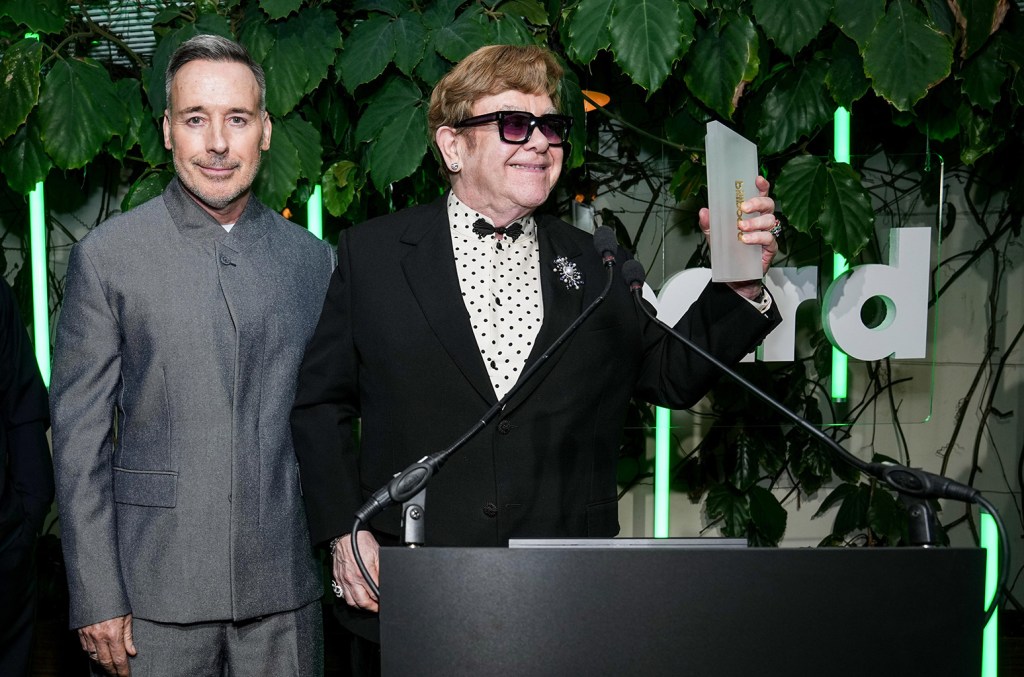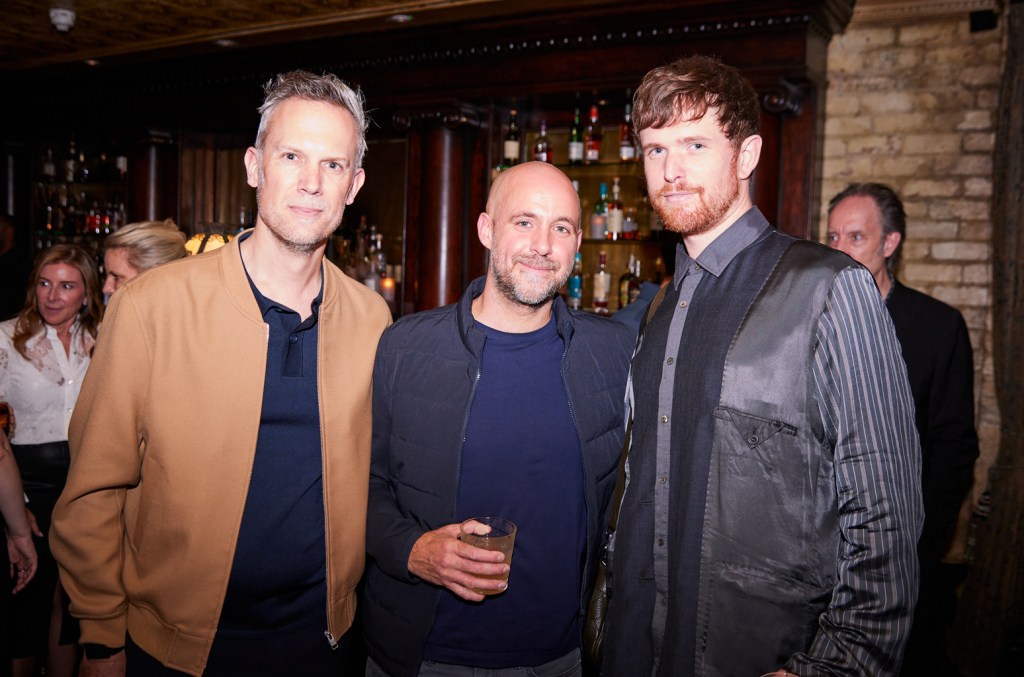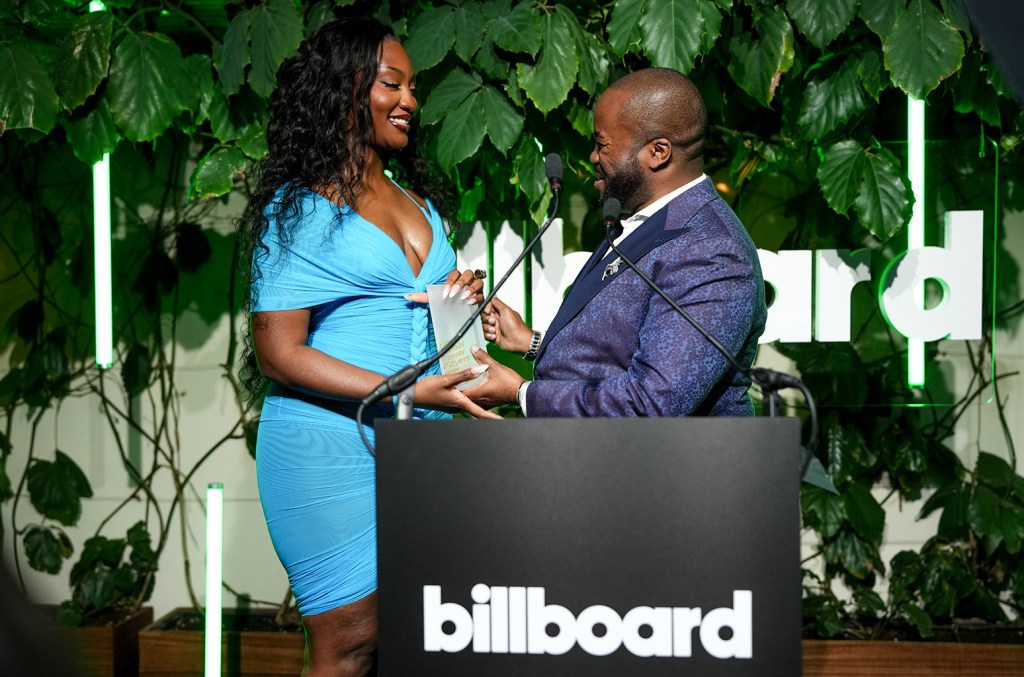global power players

Trending on Billboard
Billboard honors leaders driving the success of the music business outside the U.S. through its Billboard Global Power Players list. Among the industry figures recognized this year is Taeko Saito, Senior VP of business development and strategies, Asia Pacific at EMPIRE, marking her first appearance on the list. To commemorate the achievement, Billboard Japan spoke with Saito about EMPIRE’s business strategy, the growth of streaming markets across different countries, and the challenges facing Japan’s music industry today.
Explore
See latest videos, charts and news
Could you tell us a bit about your background?
Taeko Saito: I spent most of my childhood in the U.S., and after graduating from university, I began my career as an assistant at AAM, a music producer management company. I later joined the publishing company SONGS Music Publishing as an A&R, where I handled deals with artists like Diplo, Lorde, and The Weeknd. After that, I moved to Downtown Music Publishing, where I helped establish its Japan office, and since 2023, I’ve been working at EMPIRE.
Tell us about EMPIRE’s business operations.
EMPIRE was founded in 2010 as a music distribution company. At the time, there were very few distributors specializing in specific genres, but we focused on hip-hop from the start. From there, the company expanded into label and publishing operations, leading to where we are today.
What led EMPIRE to focus on hip-hop?
It comes from a desire to share music from underrepresented communities with the world. Our CEO, Ghazi (Shami), comes from an immigrant background, which may have influenced that vision. He grew up in San Francisco surrounded by street culture, so in many ways, the focus on hip-hop was a natural extension of that. These days, though, we’re not limited to hip-hop — we’ve expanded into regions like Africa and Asia. One of the fastest-rising artists on our roster right now is Shaboozey, a Black country artist.
With streaming now the dominant form of music consumption, artists no longer need to be signed to a record label to release their work. They can do everything independently, though many still don’t fully understand the options available to them or the finer details of how to navigate that process. That’s where we come in: we offer independent artists a range of contract structures and opportunities tailored to their needs. Our goal is to show that there’s more than one way to succeed, and that artists can take flight in ways beyond the traditional system.
Your work focuses on the Asia-Pacific region, is that right?
Yes, mainly Asia. Aside from myself, we have staff based in Singapore and Indonesia, and we work closely together. Also, EMPIRE’s workforce is culturally diverse, with people from many different countries. This mix of cultures makes it reassuring to have headquarters collaborating with us as part of the same team.
The streaming market is slowing but still growing, with particular attention on Asia, Africa, and South America. How does EMPIRE view this situation?
Expectations for growth in Asia are very high. For example, a recent deal I handled was with a label in Cambodia. Spotify only became available there four years ago, in 2021.
That’s quite recent.
Yes. The music business there is still very young. Among the labels we’ve signed, the most successful artist is VannDa, whose videos have racked up hundreds of millions of views on YouTube and who’s seen remarkable growth just over the past year. Countries like Myanmar and Laos also have predominantly young populations, which makes them especially eager to embrace new services.
That said, there are still challenges on the business side in that royalty rates remain low. Japan has the highest rates in Asia, but in other countries, they’re significantly lower compared to regions outside Asia. It’s a complex issue that involves negotiations between nations, but I believe continued dialogue will help drive further growth.
Japan is often seen as a rare example of a country where CD sales and streaming coexist in its music market. What are your thoughts on this situation?
I think it’s wonderful how Japanese artists place such great importance on quality and on treating each fan with genuine care. However, I’m not sure the same approach would necessarily be accepted in the U.S. in exactly the same way. There are cultural differences and what people embrace or don’t, what they find easy or difficult to digest. That’s why I feel the way music is presented varies greatly from country to country.
I also think that what “success” means can differ from artist to artist. For example, say an artist wants to go global and win a Grammy. But is the goal simply to win a Grammy, or to earn the recognition of the Recording Academy members and to have them feel that this artist deserves a Grammy? Those may sound similar, but the narratives are very different.
And if the goal is to top the Billboard charts, that’s another story altogether. Grammy-nominated artists or works aren’t always those with the greatest commercial success — cultural impact, musicality, and message often carry more weight. So sometimes, winning a Grammy and achieving commercial success don’t necessarily go hand in hand.
So in terms of differences between Japan and other countries, I think the definition of success itself is different. In Japan, there’s a strong focus on nurturing lifelong bonds with each fan — the kind of fan who will buy CDs and cherish that artist for years. The approach is completely different overseas, and I think that gap is part of why the two worlds haven’t always connected. Still, many have continued to take on new challenges, and with the precedent set by K-pop, there’s now a growing sense of optimism across Japan’s music industry. I think what’s most important going forward is to stay adaptable and keep pushing forward with that spirit of challenge.
Have you noticed any major changes in the U.S. music scene over the past ten to twenty years?
The biggest shift has been in the independent music scene. Twenty years ago, “independent label” mostly brought to mind alternative bands, but now artists of all kinds own their rights and release their music on their own. Seeing that change makes me think Japan can move in the same direction. For idol groups and similar acts, where producers lead the projects, it’s natural for those producers to claim ownership of the rights. But for singer-songwriters, bands, or rappers who write their own material, I’m not sure that same structure always fits. Some artists may thrive under that traditional setup, while others might prefer to manage their own work and release independently. I believe that the latter market will only continue to grow, and when that happens, it’ll be crucial for major labels and agencies to adapt accordingly.
When you look at organic reactions online, you often see artists who go viral once but fade quickly afterward. In those moments, what really matters is an artist’s ability to build their brand and develop a lasting fan base. Today’s younger audiences move fast and shift to the next trend almost instantly. In that kind of environment, understanding what makes an artist someone you want to keep following is where labels and management teams can really make a difference.
And because artists now have the right to choose their own path, I want them to think carefully about what approach best suits them. When I sign an artist, I always make it clear that EMPIRE isn’t a one-size-fits-all label. The artists we work with are business owners in their own right — people who can think about how to evolve and expand their own ventures. Only a small number of artists are truly the right fit for EMPIRE, but for those who are, we’re confident we can help them grow more than anywhere else.
Are there any Japanese artists currently signed to EMPIRE?
Yes, we recently signed an artist named Litty. She only began releasing music last year, so she’s been active for about a year now. She also took part in a songwriting camp we hosted recently, where she collaborated with overseas artists for the first time. She absorbed everything like a sponge, and it was inspiring to see.
Billboard recently launched in Africa, signaling growing global attention on music scenes outside the West. What are your thoughts on that trend?
It’s hard to say definitively why African music has become so deeply rooted in the U.S., but I think part of it comes from a desire within the Black community to reconnect with their roots. Looking at trending charts, there are moments when I sense a similar response among Asian listeners in America — almost as if they’re reacting to how Asian artists haven’t always been fully recognized in the past. Seeing the global success of artists who weren’t traditionally part of the mainstream, especially in K-pop, feels like a reflection of more people embracing their own roots and identities.
The U.S. is the world’s largest music market and a multicultural nation. Do you think it’s because of that diversity that music from so many different countries is being heard there and spreading globally through social media and streaming?
Exactly. The music industry is undergoing a fascinating transformation right now. Music is being heard across borders more than ever, and listeners have become increasingly open to that diversity. For us, Asia still has so much untapped potential. Going forward, we want to build on EMPIRE’s strengths while exploring how best to adapt them to each country’s unique landscape.
—This interview by Naoko Takashima first appeared on Billboard Japan
As the SXSW festival made its London debut this week, a group of top music industry leaders convened for an intimate dinner hosted by Luminate — the data and insights company that powers the Billboard charts — and Music Business Worldwide. The mix of music company CEOs and entrepreneurs — many of whom had just […]
Billboard hosted its first Global Power Players event in London on Wednesday night, where Elton John and his husband and manager David Furnish, EMPIRE founder and CEO Ghazi Shami and Afrobeats superstar Tems were recognized with special awards. John and Furnish collected the Creators’ Champion Award, with John saying in his speech, “Supporting the next […]
Billboard hosted its inaugural Global Power Players event in London on Wednesday (June 4) to celebrate music industry leaders from across the world.
The invite-only event at Shoreditch House in east London honored the chosen executives for the Global Power Players list and the first-ever U.K. Power Players selections. Huge names including Sir Elton John and his husband and manager David Furnish, EMPIRE founder and CEO Ghazi Shami and afrobeats superstar Tems were recognised with special awards.
John and Furnish collected the Creators’ Champion Award, and John used his speech to warn the U.K. government that “we will not back down” in relation to the Labour party’s controversial AI bill, which proposes an opt-out approach for music rights holders. Key industry figures such as John have called upon the government to work with the creative industries to find a solution; the government’s bill has been rejected by the House of Lords on five occasions in recent weeks.
Trending on Billboard
“Copyright has to be transparent and seek permission,” John said. “These two principles are the bedrock of the industry and they must be included in the data bill as a backstop. Let’s be clear: we want to work with the government, we want our government to work with us. We are not anti-AI and we are not anti-Big Tech.”
He added: “I will fight for this until it’s done and people have a fair deal. Every young artist or new person who writes a song, I want them to have a future and have their copyright respected.”
Ahead of her headline set for Billboard Presents The Stage as part of SXSW London on Thursday (June 5), Tems collected the Diamond Award from incoming Billboard Africa editor Nkosiyati Khumalo.
“Being African and a musician is a whole new world and I feel like Billboard has been so supportive of not just African music but the whole scene and the culture,” she said. “This has been a really great honor, especially given that that African music is moving to heights that has never been seen before, and Billboard is one of the key players in moving that needle forward.”
EMPIRE founder and CEO Ghazi Shami was the recipient of the coveted Clive Davis Visionary Award, joining TDE’s Punch and Top Dawg (2024), Bang Si-hyuk (2023) and Joe Smith (2014) as honorees. Named after the iconic recording executive, the prize was presented by Nigerian musician and YNBL label boss Olamide, and follows EMPIRE alum Shaboozey’s record-busting stay atop the Billboard Hot 100 in 2024 with “A Bar Song (Tipsy)”
Collecting the award, Ghazi said: “I often tell people that EMPIRE is a philanthropy company masquerading as a record label. I truly believe that in my heart. It wasn’t always that way. Being a visionary means you see a need in your community and you try and figure out how to serve that need. I felt that the San Francisco and the Bay Area community had a void in the music distribution space and fast-forward 15 years later, I’m blessed to say we built a global operation that reaches the four corners of the earth. We have employees in 25 countries and have probably the most diverse staff in the music business by design and intention.”
He added, “I grew up as an immigrant kid in San Francisco with Palestinian parents who were refugees of war, and sometimes as a child I often felt like I was invisible. How would I be seen in a world that didn’t see me? I took the initiative to build a company where everyone could be seen and everyone could be heard and I always like to tell people that if you’re excellent they can’t deny your existence.”

Sir Elton John collected the Creators’ Champion Award at Billboard’s Global Power Players event in London on Wednesday (June 4) and used his speech to warn the U.K. government that “we will not back down” in relation to its controversial AI data bill.
Joined by his manager and husband David Furnish, John was awarded the inaugural trophy by Billboard editor-in-chief Hannah Karp in recognition for standing up for the creative industry and calling for fair usage and protections for music rights holders in relation to AI models.
As referenced in John’s speech, the Labour government’s data bill – which proposes an opt-out approach for rights holders, as opposed to the preferred opt-in strategy – has been voted down by the House of Lords for an unprecedented fifth time. Led by Baroness Kidron, the ping-pong between the Houses of Commons and the upper house has lasted for weeks and resulted in John calling the government “absolute losers” in a recent interview.
Trending on Billboard
Taking to the stage, John thanked Billboard for the accolade as he was honored alongside other industry leaders such as Empire’s Ghazi and Tems on the night. “Supporting the next generation of British artists is the one of the major driving forces in my life,” he said and thanked the Lords who backed the amendment saying “you rock.”
He continued: “The onus is now on the government to do the right thing and have transparency added to the bill. We’ve asked them so many times to come to us. We’ve had so many meetings with them saying that we wanted to work with you.
“Copyright has to be transparent and seek permission,” he continued. “These two principles are the bedrock of the industry and they must be included in the data bill as a backstop. Let’s be clear: We want to work with the government, we want our government to work with us. We are not anti-AI and we are not anti-Big Tech.”
John added in his passionate speech: “We are not against Labour and we want a solution. We want to bring all parties together in a way that is transparent and fair and allows artists to maintain control of their work.” He concluded: “We will not back down and we will not go away quietly. This is just the beginning.”
Read the full speech below.
Elton John’s full speech at Billboard‘s Global Power Players event
“Thank you to Billboard for honoring myself and David with this incredible award. Supporting the next generation of British artists is one of the major driving forces in my life. It’s so important. As everyone in this room is aware, the data bill is currently looming over us and our musicians and our industries and the future of the livelihood of all artists.
It is an existential issue. In the last few hours the government has been defeated for an unprecedented fifth time by the House of Lords – that’s never happened before. The Lords, who have backed our crucial amendment to the bill – thank you so much – you rock.
The onus is now on the government to do the right thing and have transparency added to the bill. We’ve asked them so many times to come to us. We’ve had so many meetings with them saying that we wanted to work with you. I voted for you, you promised me that you wanted to get young artists into Europe. I did a show for you and to get more finance into the country and investment. I did a show at St Paul’s Cathedral… and we’ve heard nothing.
Copyright has to be transparent and seek permission. These two principles are the bedrock of the industry and they must be included in the data bill as a backstop. Let’s be clear: we want to work with the government, we want our government to work with us. We are not anti-AI and we are not anti-Big Tech.
We are not against Labour and we want a solution. We want to bring all parties together in a way that is transparent and fair and allows artists to maintain control of their work. It’s so fucking important. A machine is not a human being; it doesn’t have a soul. An artist when they create or they write or they sculpt or they paint or they photograph has a soul, it’s coming from the feeling of a person. And it’s so important if we ever lose that, we are well and truly fucked.
We will not back down and we will not go away quietly. This is just the beginning and thank you Billboard and Baroness Kidron for standing up for our world beating artists and journalists and playwrights and authors.
Let’s put it like this: The entertainment industry brings £125 billion to the United Kingdom and is the second biggest industry in this Great Britain. And they are treating us like shit. They are treating us like idiots. They have their head in the sand. The Labour government at the moment should be called the Ostrich Party. I will fight for this until it’s done and people have a fair deal. Every young artist or new person who writes a song, I want them to have a future and have their copyright respected.
There’s 2.4 million people in this industry in Britain, and 70% of them live outside of London. This isn’t a case of wealthy London people, this is a nationwide thing. Please listen to us, government. If you don’t, there’s going to be trouble. If you don’t, I will come banging on your door. But let’s get together: give me a call! Let’s have a cup of tea! So far, you haven’t responded to anything we’ve suggested. Thank you!”
-
Pages

 State Champ Radio
State Champ Radio 



